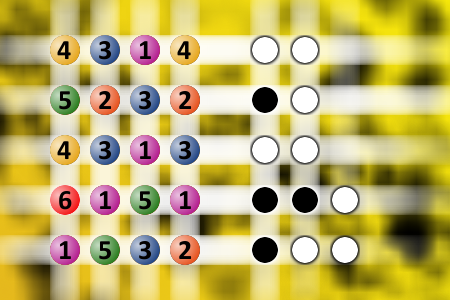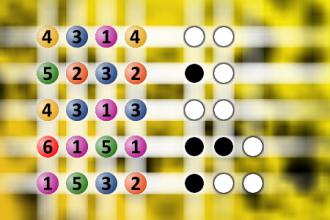What a winning combination?
The computer chose a secret code (sequence of 4 digits from 1 to 6). Your goal is to find that code. Black circles indicate the number of hits on the right spot. White circles indicate the number of hits on the wrong spot.Correct answers: 23
The first user who solved this task is Nasrin 24 T.
#brainteasers #mastermind

You know what i love most about us
You know what i love most about us ? I love how comfortable we are with each other. I love how we endlessly make fun of each other,
but never take the teasing to heart. I absolutely adore how when i turn away from you when we're fighting, you try to stay mad, then run after me.
I love the look in your eyes when we kiss, or how you stay up to watch me sleep. I love how i can call you anytime when i need someone and somehow you never cease to make me laugh. I love how you need me as much as I need you. And most of all, I love how you love me.
but never take the teasing to heart. I absolutely adore how when i turn away from you when we're fighting, you try to stay mad, then run after me.
I love the look in your eyes when we kiss, or how you stay up to watch me sleep. I love how i can call you anytime when i need someone and somehow you never cease to make me laugh. I love how you need me as much as I need you. And most of all, I love how you love me.

